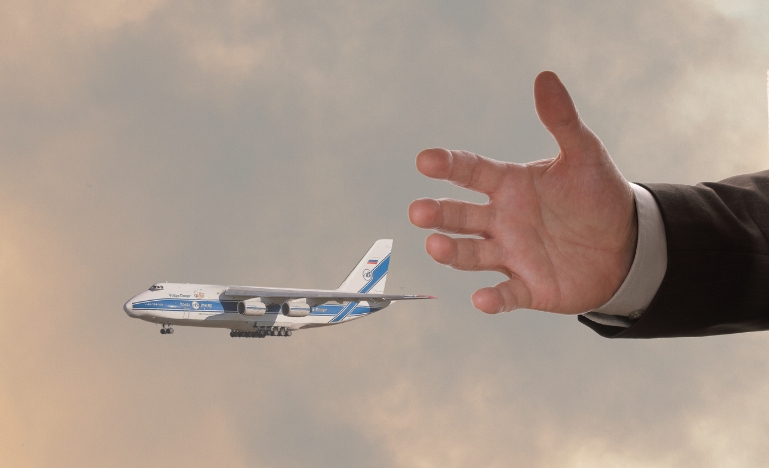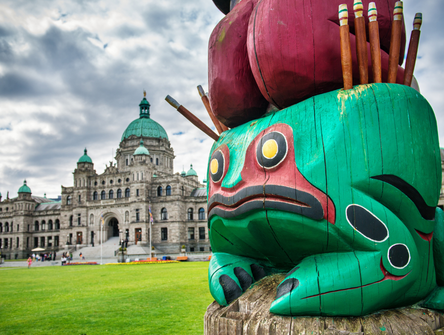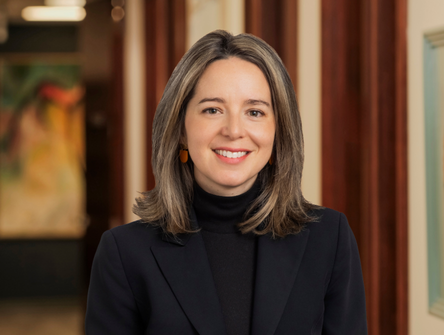Setting a global precedent in response to aggression
Canada tries to show the way to seizing Russian assets.

The world is watching Canada.
That was the message Ukrainian Ambassador Yuliya Kovaliv delivered to the Canadian Institute for the Administration of Justice's annual conference in Ottawa recently. The conference's central theme was the "Law of borders."
With its war of aggression, Russia has breached Ukraine's borders and the norms of international law, and in the face of that, she said Kyiv is building a coalition of global partners to bring it to justice.
"Russia needs to pay for the damage," Kovaliv said. "They started the war. Their tanks crossed the border. Their troops have been raping Ukrainian women, killing Ukrainian civilians. Their missiles have destroyed our cities."
Recovery and rebuilding won't come cheap. Earlier this year, the World Bank estimated it would cost $411 billion over the next decade.
To start gathering those funds, Canada was the first G7 country to move ahead with legislative efforts to target private Russian-owned assets. Amendments to the Special Economic Measures Act last year give Ottawa the power to seize and sell off assets of sanctioned foreigners, and direct the funds to Ukraine.
To date, a restraint order has been issued for the funds held by Granite Capital Holdings, a US$26-million company owned by Russian oligarch Roman Abramovich, and a seizure order has been issued for a privately-owned cargo plane parked in Toronto. The next step involves getting forfeiture orders from the courts.
How this is implemented in Canada matters, Kovaliv said. Not only will it set a precedent here, but it will also guide other jurisdictions in doing the same with billions in frozen Russian assets.
"You need to remember, most of these assets are corrupt assets, are assets of Russian oligarchs that got their huge fortune by being close to the Putin regime, by using the taxpayers' money for their personal interests or the interests of their companies."
While many would agree that in the context of Russia's invasion, it's appropriate to seize and forfeit assets, John Boscariol, the head of McCarthy Tétrault's international trade and investment law group, says there are issues with the process of adding individuals to the sanctions list.
He notes that in the United States, asset seizures and forfeitures usually stem from the commission of a crime or a sanctions violation. That's not what happens here.
"We're talking about forfeiture just solely based on someone being added to a list. And there is no transparency in that process," Boscariol says.
"We act for some parties who we feel have been inaccurate, improperly listed, and I can tell you there's no process right now for finding out why they're listed. You can put in a delisting application, but the government's not issuing decisions on those applications – at least not yet."
He says the federal government needs to put resources and funding into administering the sanction measures to ensure they're appropriate and done with due process and fairness in mind.
The Canadian government wants to be seen as aggressive on this file, but Boscariol says it needs to be careful given the potential for Moscow to retaliate against Canadian assets in Russia. Canada and Russia also have a bilateral investment treaty in place. The Foreign Investment Protection and Promotion Agreement allows foreign investors to sue the federal government if it has violated its investment protection obligations and caused them damage as a result. That includes protection against expropriation without fair market value compensation.
While the focus to date has been on private assets, the real money is in state assets. Accessing them is trickier, but Rob Currie, a law professor at the Schulich School of Law specializing in transnational and international criminal law, says it's not impossible – especially when a country is acting as Russia has since 2022.
In normal circumstances, under international law, state assets are immune to seizure by another state. Countries are also protected from court proceedings in other jurisdictions.
In Canada, these principles are found in the State Immunity Act.
The way around them is the doctrine of countermeasures, as Currie and his colleagues at the New Lines Institute set out in a report earlier this year.
By invading another sovereign state, Russia has breached a fundamental rule of international law (and the UN Charter), the argument goes. That's a duty Russia has to every state in the world.
"When a rule of international law is broken, other states can claim countermeasures. So, while Russia is breaking this rule, other countries are entitled to breach a legal obligation under international law. It's what we call a self-help remedy," Currie says.
The relevant rule here is state immunity. Countries are going to suspend the protection that might attach to any of Russian government assets, wherever they happen to be.
"That's the fundamental legal argument – that they're no longer immune from seizure by way of their own conduct," Currie says. "The idea is that the obviously guilty don't get to have that particular protection erected around their assets anymore."
Bill S-278, sponsored by Senator Ratna Omidvar, sets out a possible legal pathway for Canada to seize state assets.
The proposed legislation draws on the fact that while the State Immunity Act limits court action against another state, its reach doesn't extend to executive actions such as cabinet orders. As a result, state assets are shielded from legal proceedings in court, but not executive actions.
Bill S-278 amends the Special Economic Measures Act to allow for the seizure of state assets by way of executive action by the Governor-in-Council.
During the bill's second reading in October, Omidvar told the Senate that since the start of the war, about $300 billion of Russian state assets have been frozen by G7 countries.
"Because Canada likely only has a small amount of Russian state assets, we also have a unique opportunity to reach for a low‑risk yet high-impact opportunity to set the pace so that others follow," she said.
"Being the first nation to do so puts us in an extraordinary position of global leadership by explaining the international rationale and the domestic pathway to do so."
That was the intent of the first seizure and forfeiture law she proposed in 2021. Its essence was incorporated into the government's Budget Implementation Act, 2022, establishing the legal framework for Canada to seize the frozen assets of corrupt foreign officials and non-state entities.
Since Canada forged ahead, other allies, including the U.S., have gathered around it, Omidvar noted in her speech. At a time when the norms against aggression, war crimes and genocide are being tested to a degree the world has rarely seen, she said the severe consequence of seized state assets might force countries to think twice before following Russia's lead.
"If Canada and other Western states want to face fewer crises like the one facing Ukraine, then we should send the unmistakable message to the international community that Russia's conduct will not be tolerated. Hesitation and appeasement only send aggression-encouraging signals," she said.


